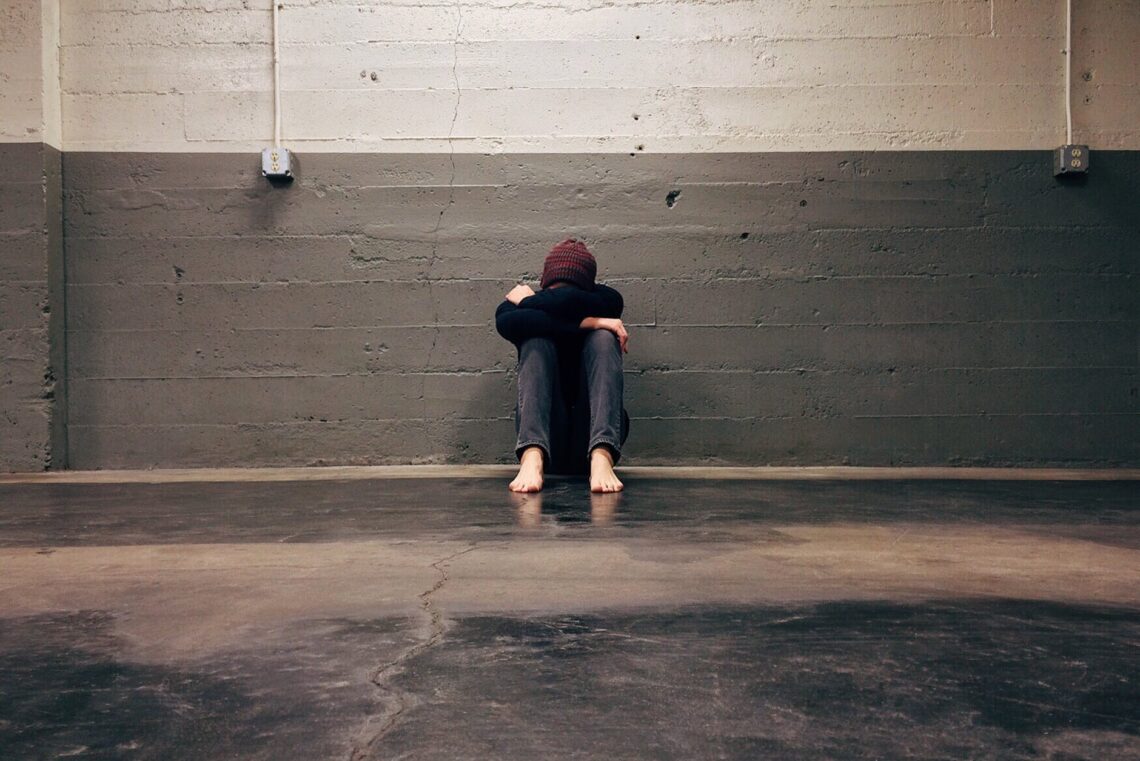
Writer anxiety is common; try our 12 best coping tips
FTC Disclosure: This site contains affiliate links and advertising. I may receive a small compensation if you click them. This helps support my work. I am not paid by every brand, and I do not recommend brands without first trying their products. For more about affiliate links, visit ftc.gov.
Coping with writer anxiety isn’t easy. Here are a dozen practical tips for getting through it.
Sometimes an event occurs that changes the course of everything you had planned to say. Such is the case this past week with Russia’s decision to invade Ukraine. As a tail-end Cold War baby with a Russian-speaking relative, this sudden break into conflict sent me straight back into deep childhood emotional angst. One of my recent posts highlighted the existing and escalating tensions in that part of the world, but what has transpired since is much worse.
It’s no surprise, then, that this global-scale shift has been spiking feelings of fear, sadness, anger, depression, and anxiety among writers and creatives everywhere.
During these trying times, it’s important to keep your mind healthy, folks. Especially when it comes to anxiety.
— Eirik Knutsvik (@EirikKnutsvik) March 1, 2022
Some great advice at the link below.
Love to Ukraine! https://t.co/Hn27fE1tHw
Image transcription: Eirik Knutsvik on Twitter: “During these trying times, it’s important to keep your mind healthy, folks. Especially when it comes to anxiety. Some great advice at the link below. Love to Ukraine!”
@EirikKnutsvik
I see everyone else managing to think of other things, go about their lives whilst still being aware and compassionate. Doing things that actually help. I’m in awe of everyone who can. Why cant my brain work like that? Anxiety and panic is being fed by my actions. Ugh.
— The H Word (Hazel) (@HazelUWriter) February 27, 2022
Image transcription: The H Word on Twitter: “I see everyone else managing to think of other things, go about their lives whilst still being aware and compassionate. Doing things that actually help. I’m in awe of everyone who can. Why can’t my brain work like that? Anxiety and panic is being fed by my actions. Ugh.”
@HazelUWriter
O best beloved, if you are doomscrolling Twitter today, ask yourself if there is anything you can personally do.
— Kingfisher & Wombat (@UrsulaV) February 24, 2022
If there is, do it. If there isn’t, remember that anxiety is not activism. Your misery does not improve the world a single iota.
Image transcription: Kingfisher and Wombat on Twitter: “O best beloved, if you are doomscrolling Twitter today, ask yourself if there is anything you can personally do. If there is, do it. If there isn’t, remember that anxiety is not activism. Your misery does not improve the world a single iota.”
@UrsulaV
What should we do when our circumstances—or those around us—change so dramatically that our work no longer feels relevant to us? How do we move past these kinds of mental blocks in order to go forward?
Here are 12 of our top tips for coping with writer anxiety:
- Prayer: For billions of people around the planet, acknowledging a deity or a higher power is a tremendous source of comfort and inner strength. If you are someone who finds reassurance and meaningfulness in religious belief, then taking time for prayer, alone or in a group setting, can refresh your mindset.
Be anxious for nothing, but in everything, by prayer and supplication, with thanksgiving, let your requests be made known to God.
Philippians 4:6, NKJV
- Meditation: Similarly to prayer, meditation can get you into a calmer state of mind. Whereas prayer directs mental energy externally, meditation turns your spiritual lens inward. Take time out for meditation as its own discipline, or combine meditation with purposeful eating or fasting practices and deliberate movements, such as yoga, for a whole mind-body experience. For a more immersive practice at home, watch videos of guided meditation practices for anxiety.
- Reading: Creative people feed off the collective output of other creatives: writers, artists, performers. Put the pen and paper and keyboard away, and pick up a book instead. You might find solace in a religious text, a spiritual study, or a lighthearted story. Find poetry that speaks to your heart, or read uplifting quotes and biographies of inspirational people. Limit your news consumption in favor of positive input.
- Physical movement: Relax with yoga stretches. Tackle nervous energy by going for a run. Combat your fears with full body play such as tennis, badminton, volleyball, or skating. Bounce balls—the harder, the better—or bounce yourself on a trampoline and feel your stress load dissipating.
- Gardening: Is there anything more sensorily satisfying than digging into rich, dark soil and tending plants? Whether you are pruning, weeding, or gently tucking seeds into their beds, engaging with the plant world is an instant mood booster.
- Cleaning: If you’re a stress cleaner, use this to your advantage. You might be a little behind on your deadlines, but at least your home will look good! Clutter has been connected to anxiety and depression, so if you, like me, naturally default to a perpetually cluttered state, now is a good time to pick up a donation box and begin sorting. One corner, one closet, one room. Get those excess and outgrown items out to your car or your curb, and you will feel so much lighter.
- Cooking: Are you a procrastibaker? An anxiety baker? I am. Deep stress usually manifests in caregiving impulses for me, especially now that I am a mom. My family has been eating cookies and scratch meals all week as a result though, so it hasn’t been all bad. If you’d like to combine your stress baking with Western solidarity, consider trying one of these Ukrainian cookie recipes from The Pure Taste.
- Donating: Find causes close to your soul, but do your homework on charities to ensure that their leadership and stated practices are in line with your expectations before sending money or items. It’s always a good idea to check around to see what kind of reputation the people you are thinking of donating to have. When in doubt, keep your giving close to home by supporting local organizations with solid experience and connections. For overseas work, cash is generally the most needed contribution.
- Organizing and fundraising: As with donations, check first to make sure that you will be working with a reputable person or organization before trying to fundraise or solicit donated goods. If you are thinking of sending hygiene items or other products for relief efforts, check ahead to be sure those items can be stored and shipped safely and will be accepted once they reach their destination. Pouring some of your frustrated energy into securing resources for others who need them can help you reframe your thinking and remind you to pause and fully appreciate your own life and lifestyle.
- Checking on others: Remember that if you are feeling fearful and anxious, you probably aren’t the only one. Check in on your neighbors. Call a friend. Bring someone a casserole. Take time to reconnect with somebody in your extended family or community.
- Social media dieting: This also applies to news media consumption. If too much time online is spiking your anxiety levels, consider cutting back on your social media engagement, at least temporarily. Likewise, if a bombardment of television, radio, or written news is sending you into an emotional tailspin, it may be best to put yourself on a media diet for a few days to weeks, until you feel more in control of your mental state.
- Music: Probably my favorite tip is to listen to uplifting music or an encouraging podcast. Find something that matches or increases your energy, and put it on while you go about your daily routines. If you are still trying to write, you might prefer music without lyrics. Otherwise, seek out the most cheerful, energetic, beautifully harmonized, and entertaining pieces of music and musical theatre that you can find. If you are seeking something calmer, seek out a podcast with inspirational or supportive content.
Which of these 12 tips for writer anxiety speaks to you the most? Do you have one we missed? Share it in the comments!
You May Also Like

Why This Millennial Writer Struggles With Queries
October 3, 2018
Y’all Need a Copy Editor: Do a photo background check, please!
February 4, 2022


2 Comments
Stuart Danker
Exercising really does bring clarity to my creative work. And I totally agree with social media dieting, which I’m currently working on right now. I feel like not spending so much time on the internet will really work wonders for my creativity. Thanks for this post!
author
Exactly! I’m not good at remembering to exercise or go offline, but I always feel better when I take those breaks. Thanks for chiming in!